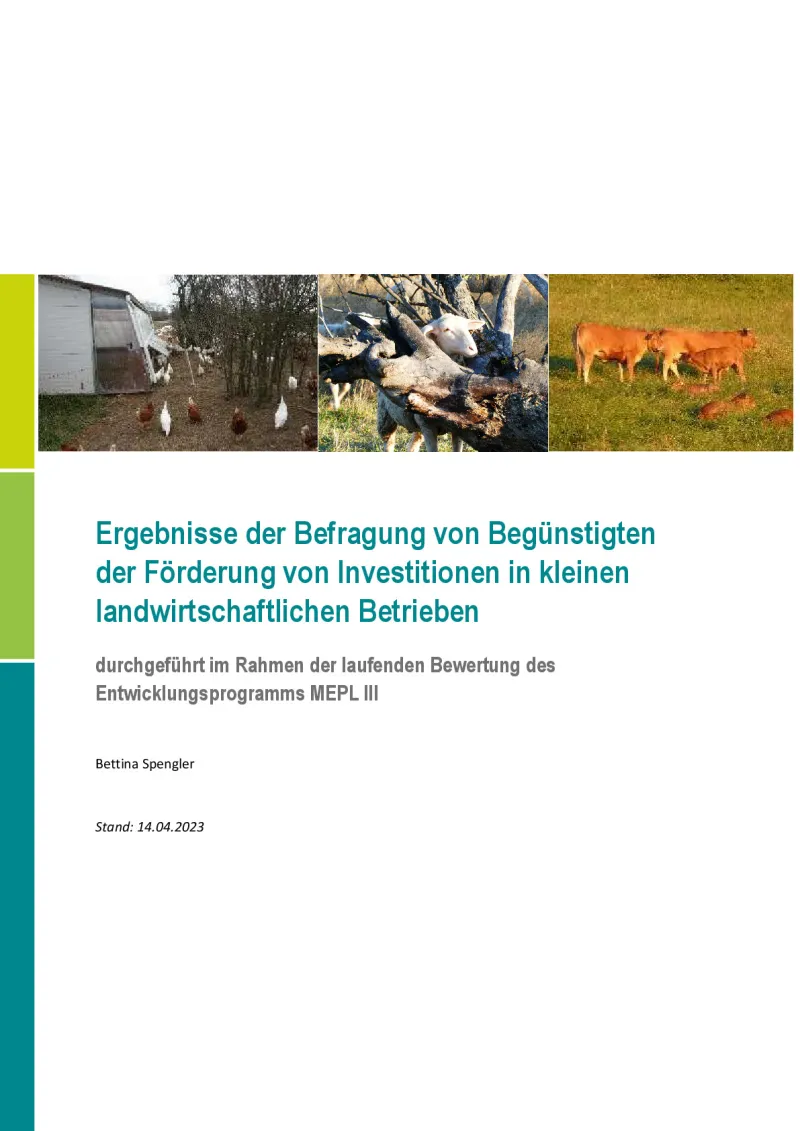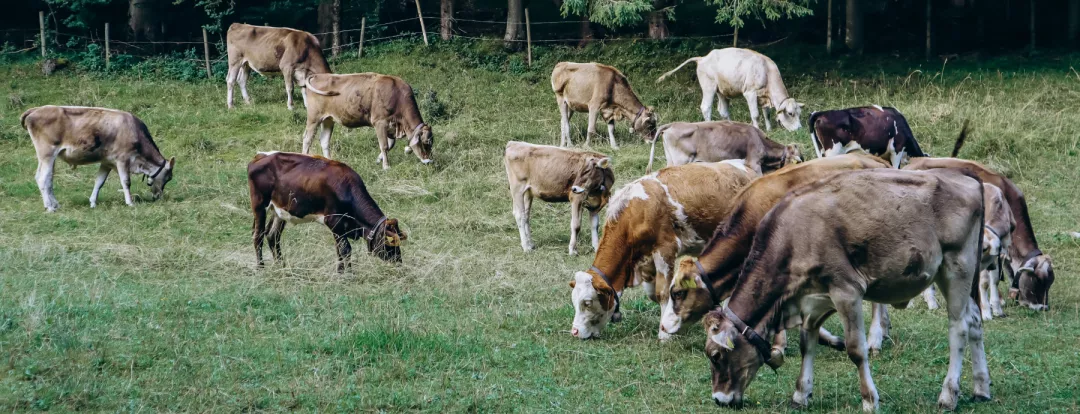Promotion of extensive grazing through contractual nature conservation
- Evaluation
- Long-term Vision for Rural Areas
- Environment
- Agricultural Productivity
- Sustainability
- Evaluation
The study analyses funding data in order to better understand the implementation of the contractual nature conservation grazing measure in MEPL III (2014-2020 Rural Development Plan (RDP), Baden-Württemberg).
- Germany
- 2014-2022
- Environmental impacts


The support of contractual nature conservation is a central measure in the 2014-2020 RDP for Baden-Württemberg to promote grazing that is adapted to nature conservation objectives.
This study analyses funding data from the Landscape Management Information System (LaIS) and the Integrated Administration and Control System (IACS) to better understand the implementation of the 'Contractual nature conservation grazing' measure.
Contractual nature conservation is expected to contribute to the promotion of extensive grazing and thus to the conservation of species-rich grassland in general, as well as to the implementation of the EU Habitats Directive and the protection of Natura 2000 sites.
The analysis focuses on Measure 10.1.4 (funding via contractual nature conservation grazing). Funding is provided for five-year contracts for grazing without the use of pesticides and nitrogen fertilisers in nature conservation areas under contractual nature conservation.
The study is not an evaluation, but rather it is intended to prepare the ex post evaluation in 2026 by analysing the implementation of the measure. Therefore, evaluation criteria are not applicable.
The study analyses 2020 funding data from the LaIS and IACS in each case. Using LaIS data, the number of applicants, subsidised area, premiums, and utilisation at the district level were determined. Analyses were also carried out on the relevant animal species (i.e. sheep, goats, cattle) and the types of biotopes reached. In addition, the combination of different contractual nature conservation measures was analysed.
With the help of IACS data, comparisons were made between farms participating and not participating in contractual nature conservation e.g. grazing with regard to animal husbandry or land area. IACS also enables the identification of dairy farms. In addition, it was analysed which other RDP support measures were used by farms participating in contractual nature conservation grazing, including compensatory allowances, measures of the support programme for agri-environment, climate protection and animal welfare.
The study analyses the measure's implementation in 2020.
According to the LaIS data, there were around 1 300 beneficiaries of the measure analysed in 2020, 94% of which were farms. Contractual nature conservation grazing is an important funding measure, especially for sheep and goat farmers. Sheep grazing dominates the subsidised areas and the funds spent. The financial contribution from the measure is particularly high for sheep farmers. Farms with at least 500 ewes are key players in contractual nature conservation. The geographical focus of the measure is on the Swabian Alb and the southern Black Forest.
According to IACS data, farms participating in the measure farm more extensively and with a greater emphasis on grassland compared to non-participants. The majority of farms participating in the measure also had contracts with other contractual nature conservation measures. Almost 70% of the farms with contractual nature conservation grazing also received payments via the compensatory allowance.
The results of the analyses provide a good basis for further evaluation of the measure's impact through literature analysis and interviews with representatives of associations (e.g. landscape conservation associations, associations of sheep and goat farmers), authorities in selected districts and other experts.
Author(s)
Institute for Rural Structural Research (ifLS)
Resources
Documents
Promotion of extensive grazing through contractual nature conservation
(PDF – 2.89 MB – 28 pages)